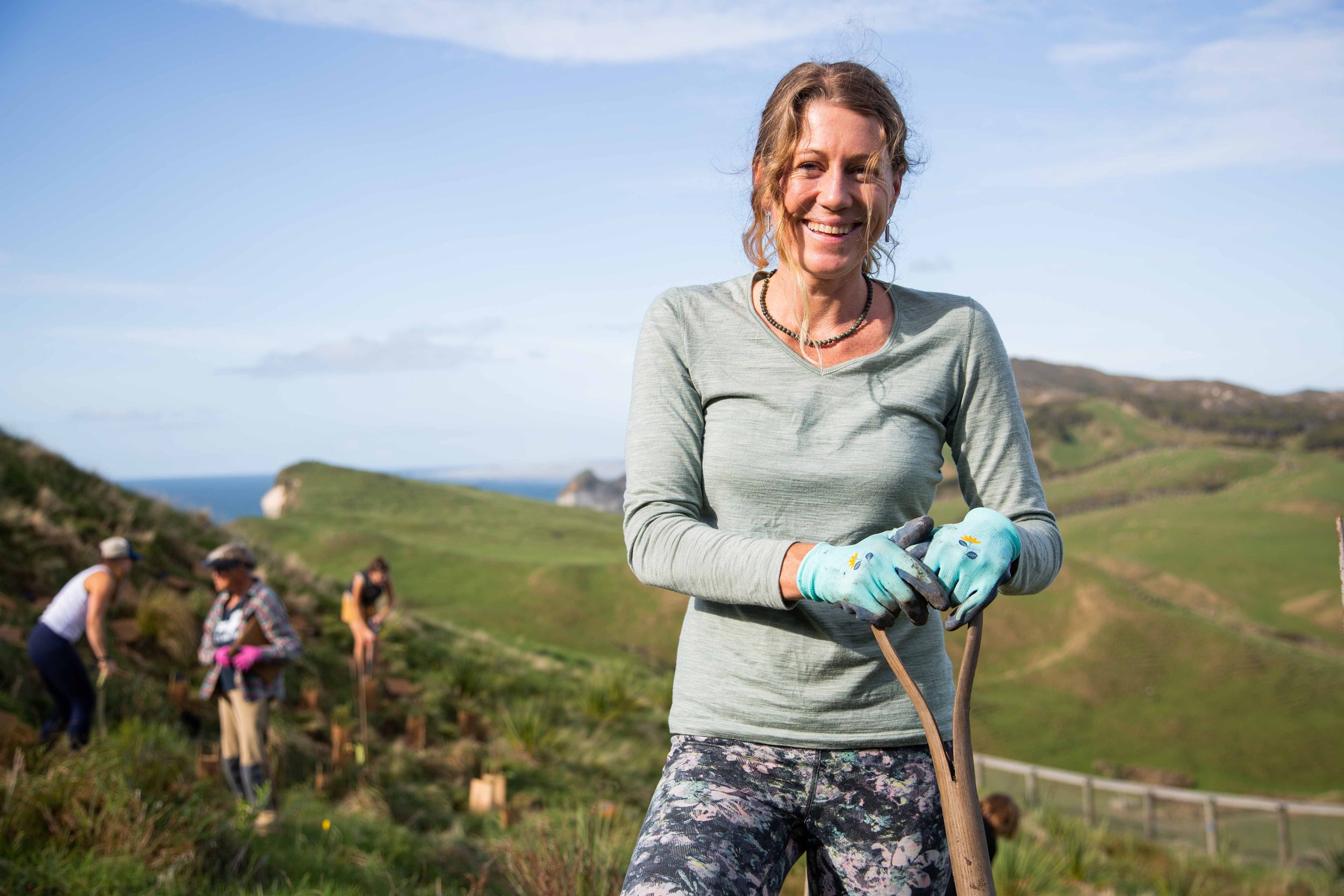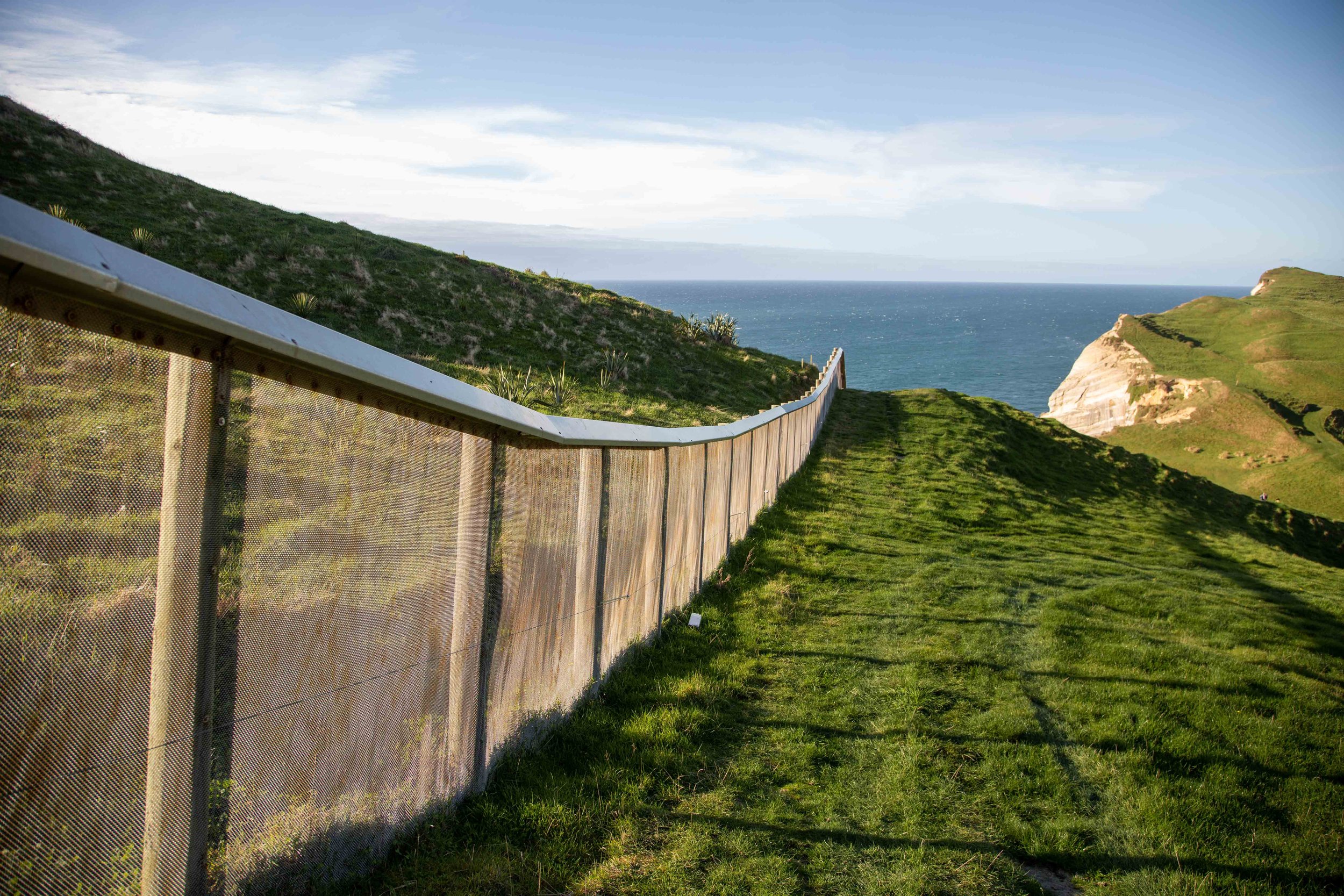
Our Work
Making it safe for the birds to return
Before we could think about bringing species back we needed to make sure they have a safe place to build a colony, so we built a three hectare predator proof fence to create an ecosanctuary. The fence was officially opened in January 2020.
Sited on the clifftops at Cape Farewell, a protective fence around the ecosanctuary has enabled us to start reintroducing threatened plant and animal species to a habitat of relative safety, starting with the translocation of 50 Pakahā Fluttering shearwater chicks in January 2022.
By February 2024, 198 Pakahā across three successful translocations had successfully fledged – a 100 per cent success rate.
“One of the main aims of the Wharariki Ecosanctuary and the HealthPost Nature Trust is to increase community and visitor engagement with the important conservation values of the Wharariki-Onetahua area.”
– Lucy Butler, HealthPost Executive Director and Sustainability Lead.
Pakahā chicks welcomed
The eagerly anticipated translocation of the first 50 pakahā fluttering shearwater chicks to the Wharariki Ecosanctuary happened without a hitch in January 2022, followed by two more successful translocations in January 2023 and 2024.
The chicks were collected at Long Island in the Kokomohua Marine reserve in Queen Charlotte Sound and taken to their new home at Cape Farewell, at the top of the South Island.
It took four years of planning, fencing, trapping, planting, and making of burrows to create the right environment to bring pakahā and other native species to the mainland where they can flourish in the protected habitat we’ve created.
Starting in 2022, a programme of bringing back birds to the Cape began with the first translocation from the Marlborough Sounds of 50 Pakahā Fluttering shearwater chicks by HealthPost Nature Trust, in partnership with the Department of Conservation (DOC) and Manawhenua kī Mōhua – representing Ngāti Tama, Te Ātiawa and Ngāti Rārua in Mōhua Golden Bay.
Two further translocations in January 2022 and 2023 from the same source site have resulted in a total of 198 chicks successfully fledging and heading out for sea where they will remain for at least to two years. We hope to see birds from the first translocation return in late 2024.
The team has built up its expertise with these translocations and more are planned.
None of this work would have been possible without our supporters, volunteers and partners Manawhenua ki Mohua and the DOC Takaka team. HealthPost donations pay the bills. We follow in the footsteps of translocation pioneers like the Matiu Somes Charitable Trust, but when the birds return it will be the first Pakahā Fluttering shearwater colony back on mainland New Zealand since predators wiped them all out.
You can read more about the Pakahā here.
Volunteers have spent thousands of hours hand feeding the chicks preparing them for their life at sea.
Annual Tree Planting
Thanks to a team effort with DOC and the local community we have planted 12,000 grasses, kanuka and cabbage trees in our Wharariki Ecosanctuary – all grown for the HealthPost Nature Trust from locally sourced seed.
These plants will provide shelter and habitat for threatened species such as Nelson green gecko, and rare matuku (bittern) in the Wharariki wetland. A native vegetation buffer inside our predator-proof fence helped prepare the ecosanctuary for the arrival of the first group of Pakahā Fluttering shearwater chicks reintroduced in January 2022.
In 2023, volunteers planted almost 3000 native plants around the sanctuary.
Our volunteers
Led by Marian Milne (Field Co-ordinator) our volunteers are the cornerstone of our work. They bring their skills from all walks of life with a shared commitment to help us reach our vision. For example, three local vets have been involved with the successful translocation of Pakahā to Cape Farewell. They work tirelessly rain and shine to help us achieve our vision.

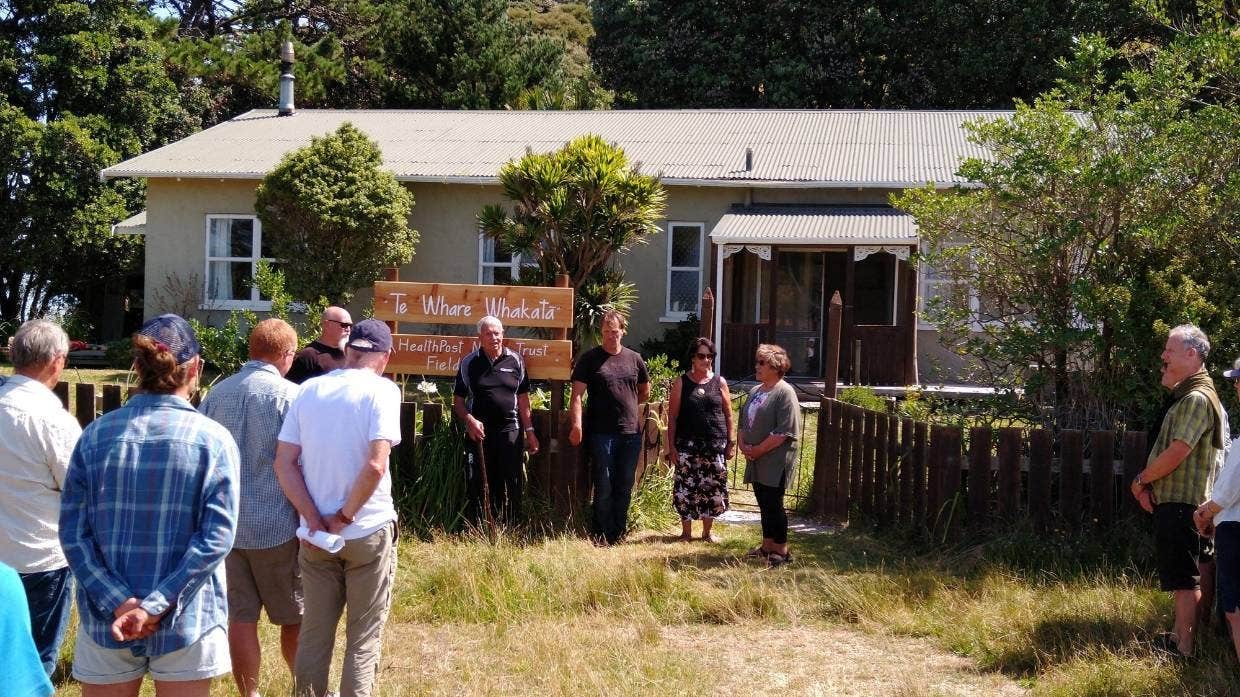
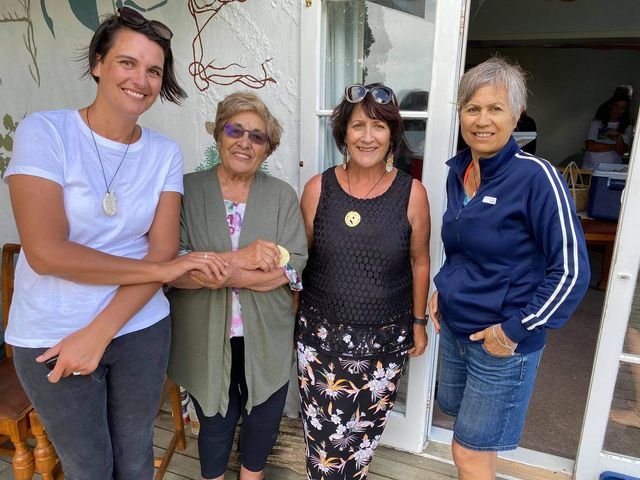
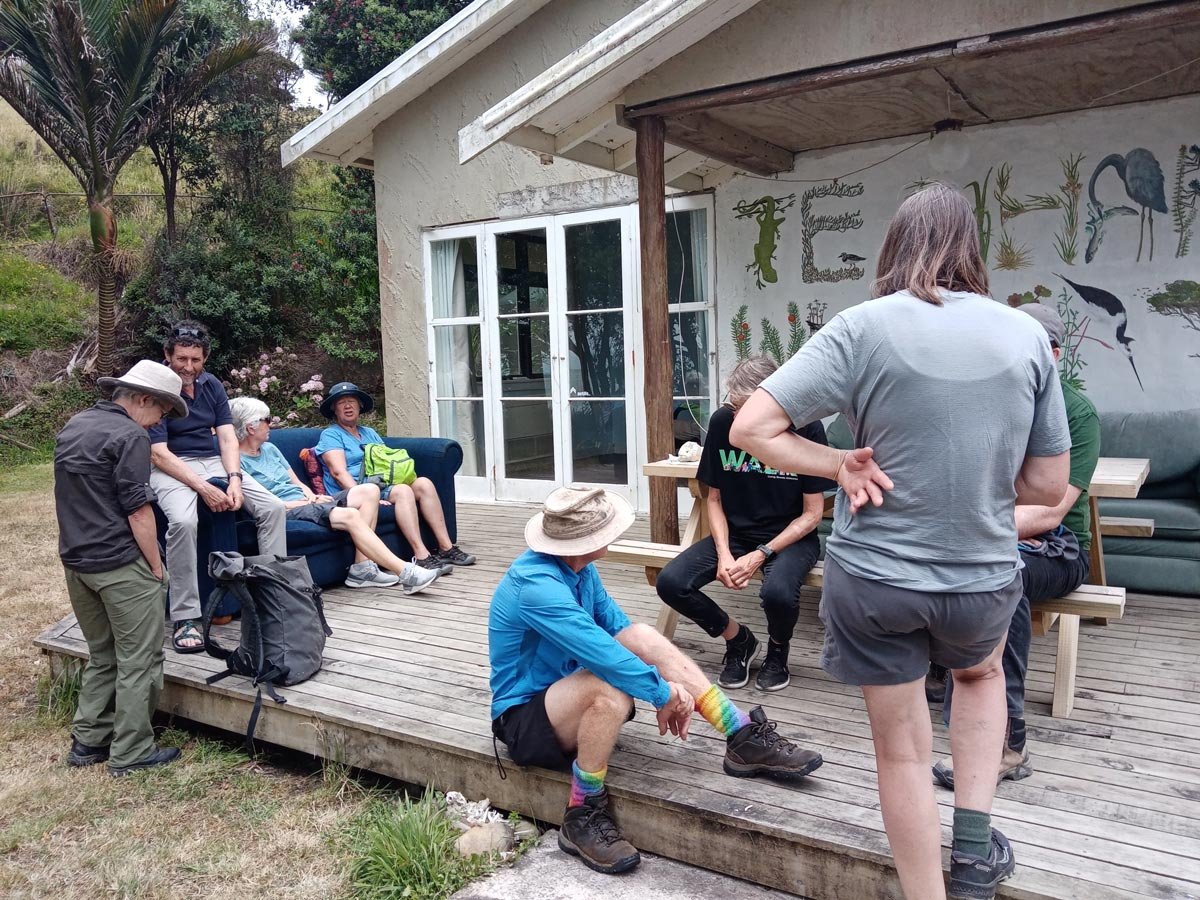
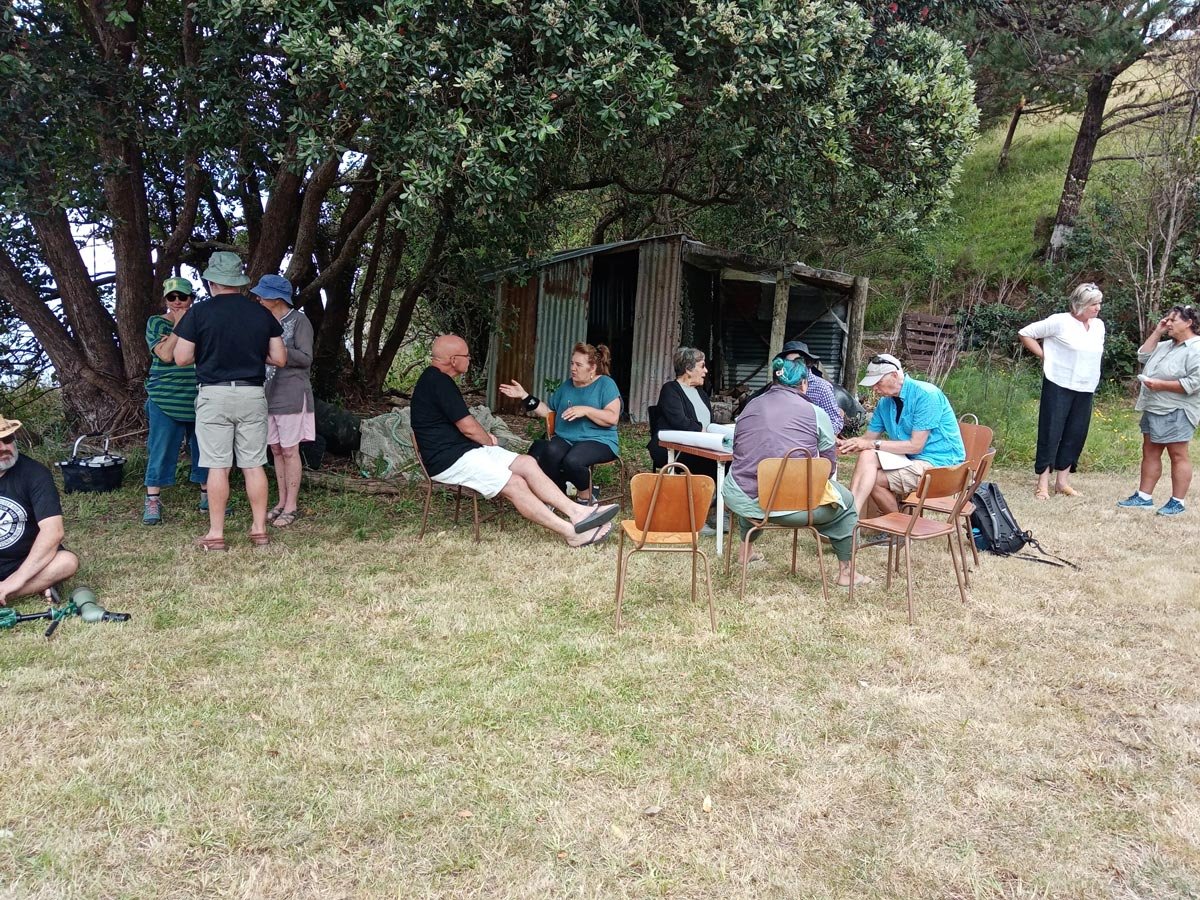
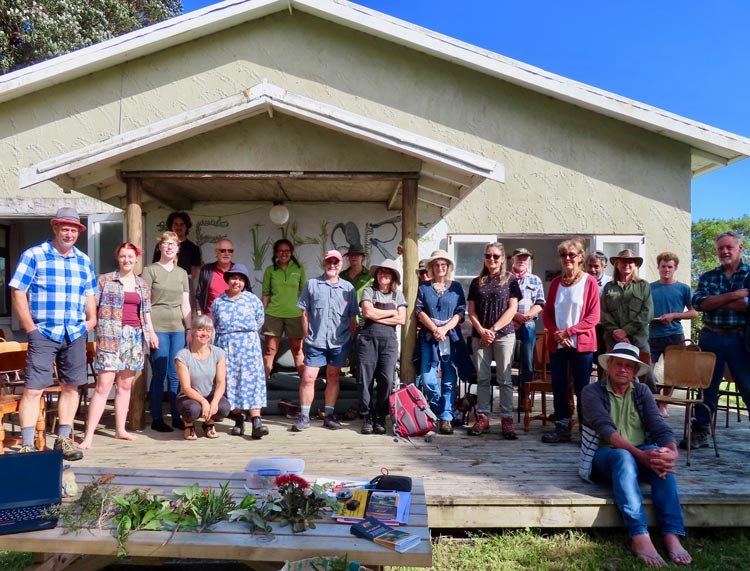
By March 2024, they had given over 8000 hours in time to our activities.
Predator trapping
Volunteers give hundreds of hours each year maintaining traps to defend the ecosanctuary.
Since 2017 over 4000 rats, 260 mice, 423 stoats, 101 weasels, 354 possums and 492 hedgehogs have been caught in almost 800 traps.
Our field station,
Te Whare Whakatā
With thanks to the Department of Conservation, in January 2021, the Trust opened a field station at the base of the Farewell Spit.
With the help of volunteers, we renovated the house to support our work.
Manawhenua ki Mohua, gifted the field station its name, Te Whare Whakatā, meaning ‘the place of rest’.
The DOC-owned house is used by those conducting biodiversity research along with trust volunteers and workers at the Wharariki Ecosanctuary. It’s also available to DOC personnel, iwi and educational groups.
A month after it opened, it became the base for a community effort led by Project Jonah to rescue 48 pilot whales stranded on the Spit.
Our work is grounded in science
We employ experts in their field to support our work.
Over two summers, we have hosted and financially supported Victoria University MSc students in their of study invasive Asian paper wasps that are decimating insect life on Farewell Spit.
We have also hosted a lizard expert undertaking a baseline survey across the Puponga farm park, including the rare Nelson green gecko and the more common Raukawa geckos.
Both of these research activities have followed on from the successful BioBlitz that we held at the end of 2019. A wide range of experts carried out intensive fieldwork for a weekend, resulting in valuable findings relating to native fish, lizards, invertebrates and lichens/mosses.

